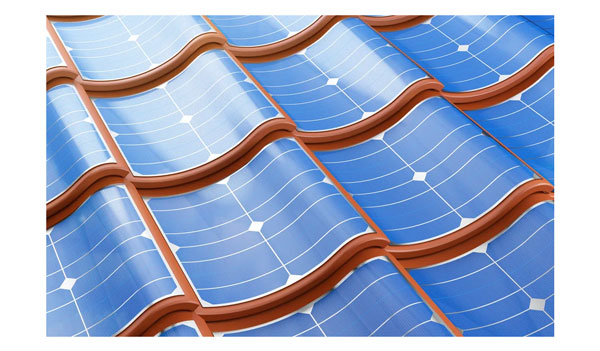Contents:
Flexible solar panels are an excellent choice for curved or uneven surfaces, providing versatility and lightweight features. This guide will explore how to securely fix flexible solar panels to a roof while maintaining optimal performance.

Tools and Materials Required
| Item |
Purpose |
| Adhesive or Sealant |
Secures the panels to the roof |
| Cleaning Supplies |
Prepares the surface |
| Screwdriver and Screws |
For optional mounting brackets |
| Tape Measure |
Ensures proper alignment |
| Safety Gear |
Protects against accidents |
Guide to Mounting Flexible Solar Panels
Step 1: Prepare the Surface
Start by cleaning the roof surface where the panels will be installed. Use a damp cloth to remove dirt, dust, and debris. For metal or fiberglass roofs, ensure the area is free from oil or grease.
Step 2: Plan the Layout
Measure the roof space to determine the best arrangement for your solar panels. Flexible panels are ideal for tight or curved spaces, so consider overlapping areas or contours.
Step 3: Apply Adhesive or Tape
| Adhesive Options |
Advantages |
| Marine-Grade Adhesive |
Strong bond; weather-resistant |
| Double-Sided Tape |
Quick and easy installation |
Apply the adhesive or tape evenly to the backside of the solar panel. Gently press the panel onto the roof, ensuring even contact across the surface. If using adhesive, allow it to cure for the recommended time.
Step 4: Secure Edges (Optional)
To prevent edges from lifting due to wind or temperature changes, consider using mounting brackets or additional adhesive. Install brackets at panel corners for enhanced stability.
Step 5: Connect the Panels
Follow the manufacturer’s instructions to connect the panels to the solar charge controller and battery system. Use waterproof connectors to ensure longevity.
Step 6: Test the System
After installation, test the panels to confirm they are generating power. Check all connections and ensure the panels are securely attached to the roof.
Maintenance Tips for Flexible Solar Panels on Roofs
Once your flexible solar panels are installed, regular maintenance ensures their longevity and efficiency. Follow these tips to keep your solar panels in optimal condition:
Clean Regularly
Inspect for Damage
-
Check for signs of wear, such as cracks, loose edges, or discoloration.
-
Address any issues promptly to prevent further damage.
Monitor Performance
Solar Energy Production Trends
Below is an example of a typical monthly energy production chart. This visual helps you understand the energy output patterns of your solar panels over time.
Solar Energy Production Trends (kWh)
Troubleshooting Common Issues with Flexible Solar Panels
While flexible solar panels are reliable, you may encounter occasional challenges. Here's how to address common problems:
Reduced Energy Output
-
Cause: Dirt accumulation, shading, or damaged panels.
-
Solution: Clean the panels, check for obstructions, and inspect for physical damage.
Loose Adhesion
Electrical Connectivity Issues
Common Solar Panel Issues and Solutions
Below is a table summarizing frequent problems and their recommended solutions:
| Problem |
Cause |
Solution |
| Reduced Energy Output |
Dirt, shading, or damage |
Clean panels, remove obstructions, inspect for damage |
| Loose Adhesion |
Improper adhesive or extreme weather |
Reapply adhesive or add brackets |
| Electrical Issues |
Loose wiring or connector faults |
Tighten connections or replace components |
| Panel Warping |
Extreme heat or poor installation |
Use a heat-resistant adhesive or reinforce installation |
| Inconsistent Output |
Partial shading or faulty controller |
Avoid shading; check and replace the controller |
Maximizing Solar Panel Efficiency
To get the most out of your solar panels, ensure that they are installed in optimal locations with minimal shading. Solar panels should be placed at the correct angle to maximize sunlight exposure throughout the day. Regularly clean your panels to remove dirt and debris that could reduce their efficiency.
Investing in higher-quality panels and controllers can also improve the performance and lifespan of your solar energy system. Additionally, using energy-efficient appliances in your home can help you make the most of the energy generated by your solar panels.
FAQs
1. What is the best adhesive to use for fixing flexible solar panels on a roof?
Marine-grade adhesive is one of the best options for fixing flexible solar panels due to its strong bonding properties and weather resistance. Double-sided industrial tape can also be used for quick and simple installations, though it may not hold as well under extreme conditions.
2. Can I use screws or brackets to mount flexible solar panels?
Yes, screws and mounting brackets can be used as an additional method to secure flexible solar panels. However, they may not be necessary for flat or slightly curved surfaces where adhesives or tapes are sufficient. If you opt for screws, ensure the roof material can handle the installation without causing leaks or damage.
3. How do I prepare my roof for installing flexible solar panels?
Start by cleaning the roof surface thoroughly using cleaning supplies to remove dirt, grease, or debris. A clean surface ensures better adhesion. After cleaning, dry the area completely before applying adhesive or mounting the panels.
4. How do I ensure proper alignment of the solar panels during installation?
Use a tape measure or chalk line to mark the desired positions of the panels. Double-check the alignment before applying adhesive or mounting, as repositioning panels after installation can weaken the bond or damage the surface.
5. How do I maintain flexible solar panels after installation?
To maintain optimal performance, clean the panels regularly with a soft cloth and mild soapy water to remove dust and grime. Inspect the adhesive or mounting brackets periodically to ensure they remain secure, especially after extreme weather conditions.






